Iranian Hardline Official Brands Arts Students Worthless
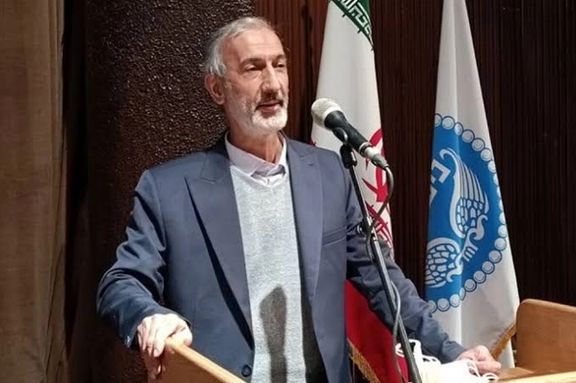
A Tehran University official has insulted fine arts and performing arts students saying they are worthless entertainers.

A Tehran University official has insulted fine arts and performing arts students saying they are worthless entertainers.
In an audio file released on Sunday, Abdolreza Seif, the Head of Faculty of Literature and Humanities and an advisor to the dean of Tehran University used a derogatory Persian word for dancers, which denotes immoral entertainers, to describe performing arts students.
Singing and dancing is forbidden in the strict interpretation of Islam, which the hardliners in Iran try to enforce.
Students at the fine arts faculty have been staging sit-ins against stricter hijab rules inside the university premises since last month.
Many were seriously injured by the campus security forces and several others arrested by plainclothes agents.
The sit-in began after the authorities announced new rules for the specialist arts institution which require girls to wear a pullover headscarf with stitched front (called maghna’e in Iran) which is like a nun’s coif, completely covering the head and the neck. Failing to comply, the university has announced, would result in suspension.
Following the incidents, several statements were issued online by students from institutions including Allameh Tabataba'i University, Tarbiat Modarres University and Shahid Beheshti University in Tehran, vowing to continue protests against the repressive policies.
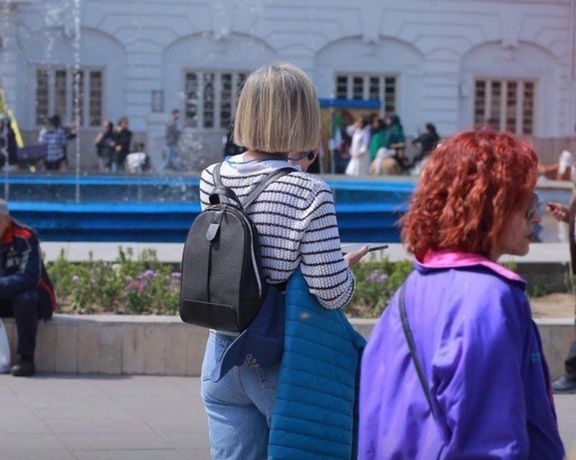
Images and reports on social media indicate that a large crowd in Rasht, northern Iran have been protesting evening after security forces tried to arrest three women over hijab.
A video received by Iran International shows thousands of people gathered gathered outside the city hall in Rasht after the hijab police tried to whisk away three women. Onlookers intervened and rescued the women. As the news of the incident spread in the city, residents began to gather in the square in protest.
Some tweets say that gunshots were heard and security forces also fired tear gas, but it is too early to verify those reports.
Iran on Sunday officially announced the return of the hijab police to streets and earlier videos and reports received from Iran showed numerous incidents of confrontations between women who chose to appear without covering their head and plainclothes hijab enforcers.
Last September, the death of 22-year-old Mahsa Amini in hijab police custody triggered months of protests and the government for a while ordered enforcers off the streets. But in the past six months more and more women have shed the hijab and appear in public in ordinary attire.
Clerics and hardliners however have been pushing for a forceful reaction to what they call "loss of honor", "lawlessness" and a phenomenon threatening the very foundations of the clerical regime.
A video emerged on Saturday showing a hijab enforcer attacking and trying to detain a teenage girl. The video quickly became viral on Persian Twitter.
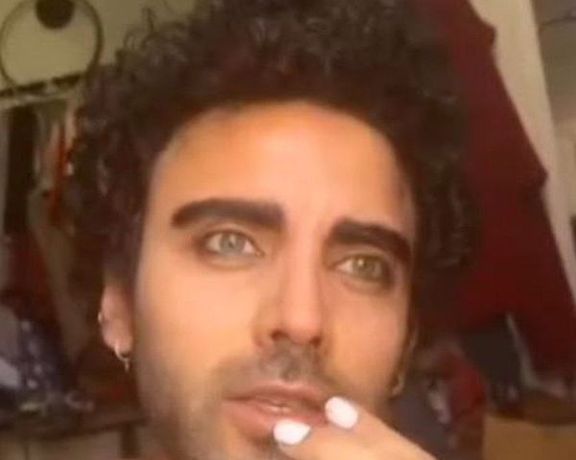
The police in Tehran arrested Mohammed Sadeghi, a young actor, during a raid on his home in an effort to clamp down on the anti-hijab movement.
Sadeghi posted a video on Instagram expressing his anger over the detention of yet another woman in morality police hands due to her inappropriate hijab.
“Believe me, if I saw such a scene, I might commit murder,” he wrote in the caption of his video. "Why do you get paid? To take people's daughters into a van and arrest them?"
Regime agents rushed to Sadeghi's house in Tehran in the wake of the post, when he jumped from the third floor in a bid to escape. A dramatic chase ensued, which he filmed and streamed live to Instagram, in spite of the regime's attempts to ban the app.
In a new campaign to enforce mandatory hijab, morality police have now returned to the streets in full force after a brief few months' respite following the worst of the unrest which erupted in September after the death of Mahsa Amini in morality police custody.
Women continue to defy the official dress code, particularly in Tehran, despite the crackdown, with huge numbers seen across the country's public spaces from malls to universities with their hair uncovered as they flout the mandatory hijab rules.
Experts fear the renewed zeal of the morality police risks reigniting tensions.

A famous victim of Iran's hijab rules, Sepideh Rashno has published details of how she was assaulted by several agents in her apartment last July, that electrified public opinion before the death of now famous Mahsa Amini.
In a post on Instagram, she dramatically explained the events after an acrimonious dispute with a hijab enforcer in a city bus on July 16.
A video of her quarrel with the hijab enforcer on social media went viral last year leading to her arrest by the regime forces.
“I was afraid and went to the balcony to scream and ask for help, but a number of regime agents threatened me not to scream, otherwise they would come up and break my neck!” read her post.
Rashno further added that over ten agents searched everywhere, and one was filming the procedure.
The 28-year-old artist and writer was tortured last year into denouncing herself and other activists, expressing regrets for her confrontation with the hijab enforcer.
Her ‘forced confessions’ was also aired on state-run television after she was brutally beaten before the telecast. Her suffering left a deep mark on many people and prepared the stage for large anti-government protests later in September when Mahsa Amini was killed in hijab police custody.
Rashno was found guilty of “association and collusion with the intention of committing a crime against the country's security" and “propaganda against the Islamic Republic” and given a five-year suspended jail sentence in December.
In May, she revealed on her Instagram account that she has been punished by her university with two semesters suspension.
"As a citizen, I have the right to choose the clothes I wear,” she wrote in response to the decision, adding that she plans to return to the university after her suspension with “her preferred outfit.”
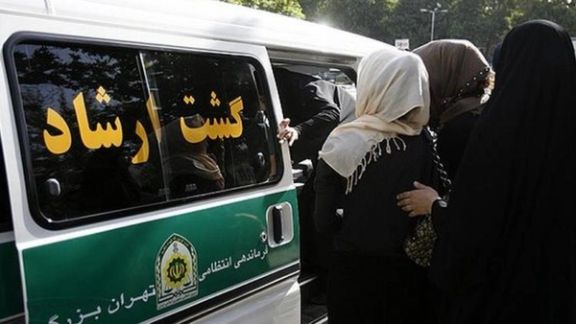
The ‘morality’ police in Iran have returned to the streets of Tehran and other cities ahead of the first anniversary of Mahsa Amini's death in police custody.
A video which went viral on Saturday shows Tehran's morality police arresting a teenage girl without compulsory hijab in Gisha neighborhood in the west.
The girl was screaming “I’m not coming with you” as the morality police try to push her into their unmarked van.
People on social media have reacted to the incident saying if Iranians do not pour into the streets on the death anniversary of Mahsa Amini in mid-September, the regime will tighten the noose.
Amini received fatal head injuries immediately after being arrested in Tehran for “improper hijab” and died three days later in hospital. Her death triggered months of anti-regime protests, which represented the most serious challenge to the clerical regime in 44 years.
Famous opposition figure and women's rights activist Masih Alinejad tweeted that this is how the morality police arrested a teenager for not wearing hijab.
“Mahsa Amini was taken away like this, then killed. Where are those journalists who excitedly reported the cancellation of the morality police?”
She was referring to a controversial report by the New York Times last December that said Iran has abolished the morality police. In response, Iranian activists accused western media outlets of disseminating misleading information on behalf of the Iranian regime.
“This is the grim reality Iranian women are subjected to living under the Islamic Regime. Nothing about this is normal. The only solution is regime change,” reads a tweet.
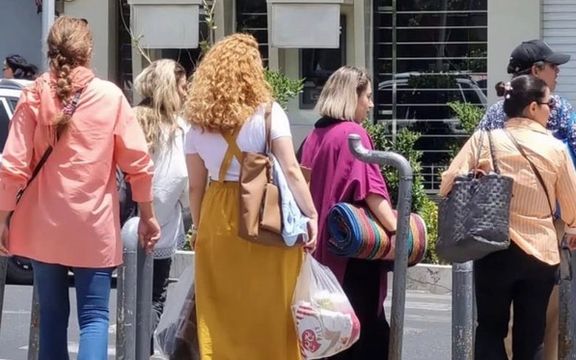
A woman should wash corpses for burial and an actress must attend counseling “to cure her anti-social personality disorder” for flouting the hijab.
These are just some of the weird decisions by religious courts in Iran handed down to women who in sizzling summer heat do not cover their upper body and head by a large shroud.
Iranian media and rights groups have reported that a woman was sentenced by a court in Varamin, a town south of the capital Tehran, to performing the ritual washing of corpses at a Tehran funeral establishment for one month in addition to a cash fine of 31m rials ($60) for not wearing the hijab in her car while driving.
Disregarding forced hijab has become common in large Iranian cities after last year’s popular protests that started when a young woman died in hijab police custody.
Another court in Tehran sentenced a woman to 270 hours of cleaning at the buildings of the interior ministry. Both sentences were a reprieve from two-month prison sentences.
“Are you not ashamed of the respectable and hardworking workers of Behesht-e Zahra funeral house for choosing their respectable profession as a punishment [for women] for not wearing your compulsory uniform?” documentary maker Mojgan Ilanlu asked the court in an Instagram post Friday.
The court ruled that the woman’s defense saying her headscarf may have fallen on her shoulders unintentionally was not acceptable.
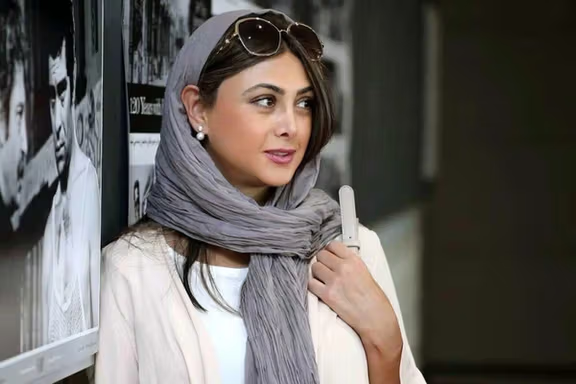
The news about actress Azadeh Samadi being sentenced to counseling sessions at “an official counseling center to cure her anti-social personality disorder” have also gone viral on social media since Friday. The court has also decided that Samadi cannot use her phone for six months and all her social media accounts would be “confiscated”.
A different court in Tehran last week sentenced another woman for defiance of hijab to two months of prison, six months of treatment for what the court called “contagious psychological disorder that causes sexual promiscuity” and a ban on traveling abroad.
Chicago-based law expert Pegah Bani-Hashemi told Iran International that judges are not entitled to sit in the place of psychologists and make diagnoses, such as “anti-social personality”, in cases where the defendant has not abided by hijab rules.
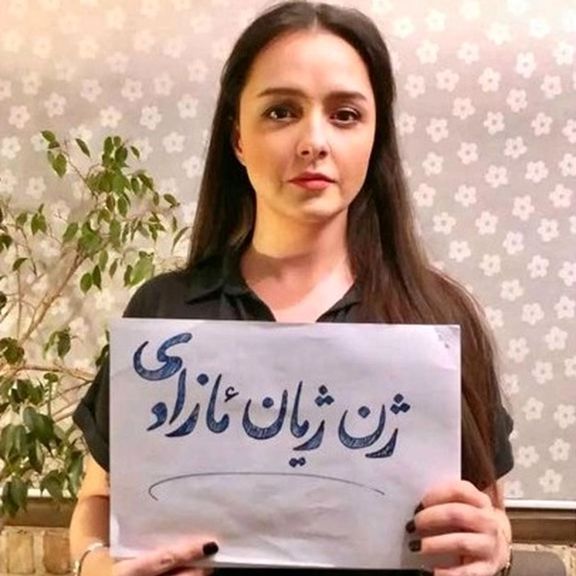
Defying the compulsory hijab, Samadi attended the funeral of a colleague wearing a hat instead of a headscarf. Actress Taraneh Alidoosti in a Twitter post criticized the authorities for convicting her colleague because in many Iranian government approved films actresses appeared wearing hats, when playing roles about the pre-1979 era when hijab was not so common.
Directors Guild of Iran and the Iran Producers Guild in a joint statement Saturday condemned Samadi’s sentencing and called it “an insult to the intelligence of all cinema people”.
In their statement, the two influential unions said they would stand by Iranian actresses and filmmakers whom the authorities try to humiliate with similar court decisions. They also demanded an apology to Samadi for the verdict which they called “weird”.
In June, Iran’s government film watchdog warned producers that if they give roles to actresses who have removed their hijab in public, their films could be banned.
Some other celebrities including Taraneh Alidoosti, and Katayoun Riahi were arrested or came under various types of pressures including foreign travel ban during the anti-government protests.
Riahi, 61, was the first among Iranian female artists to express her solidarity with the Mahsa Movement by sharing her photo without a veil on Instagram. “Iranian women are each other’s voices,” she said in her post. She was put on trial in January for supporting the protests.